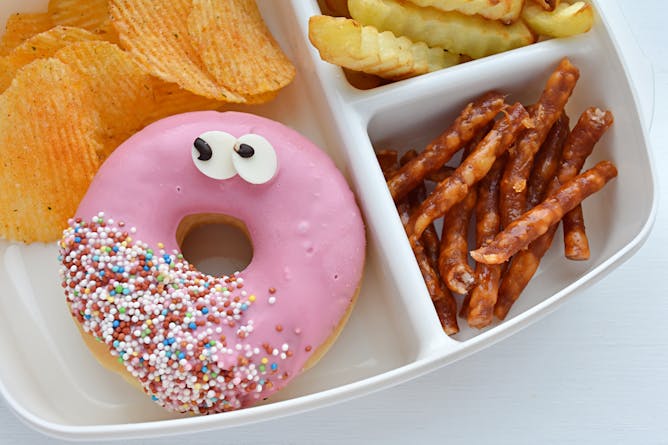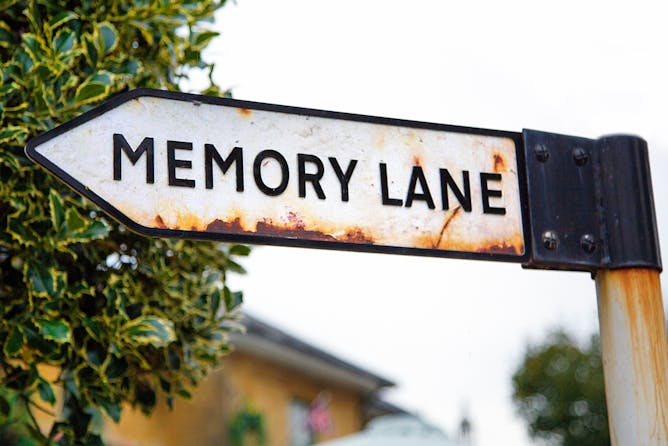|
|
|
Editor's note
|
|
In the dim and distant past, humans began making sense of an uncertain world through myth. Baffled by what thunder and lightning were, early civilisations gave them names and personalities – and by doing so, made them all the more manageable and relatable.
In 2019, we all know what thunder and lightning are – but Brexit, or at least a half decent plan for it, remains intangible, mysterious and, for many, downright scary. But Angus Nicholls argues that Boris Johnson is harnessing the power of using a type of myth known as “prefiguration” to sell his version of it.
Johnson regularly uses emotionally charged events from the past to reinforce and legitimise his position in the present. By regularly harking back to Britain’s victory in World War II – and its hero Winston Churchill – his goal is to summon up reassuring images of a mythological national heyday, when Britain ruled the waves, stood alone against a continental Nazi superstate and was in control of its own destiny.
And it seems to be working. Indeed, if Remainers want to make a compelling case for staying in the EU, perhaps they now need to create a compelling myth of their own.
Elsewhere, we investigate why school meals are still so unhealthy, and an increasingly popular form of “time-travel” care, which is changing the way we treat people with dementia.
|
Matt Warren
Deputy Editor
|

|
|
Top stories
|

Boris Johnson: telling tales.
PA Images
Angus Nicholls, Queen Mary University of London
The stories we tell about our histories can have a powerful impact on current events – and research shows how.
|

Do you know what your child is eating at school?
shutterstock
Kelly Rose, Teesside University
Obesity crisis: pizza, pastries, chips, donuts, cookies, hot dogs, and burgers – just your average school lunch.
|

jax10289/Shutterstock
Kellie Morrissey, Newcastle University; James Hodge, Newcastle University
Dementia villages and care homes that try and recreate the past are unsustainable.
|
Politics + Society
|
-
Kerstin Carlson, University of Southern Denmark
The ICC may be the only institution capable of breaking the current legal impasse.
-
Daniel Newman, Cardiff University; Faith Gordon, Monash University
Seventy years after it was first launched, legal aid's principles of equality are a shadow of what they once were.
-
Nic Cheeseman, University of Birmingham
In the recent Nigerian election WhatsApp was used to mislead voters in increasingly sophisticated ways. But it also strengthened democracy in other areas.
|
|
Business + Economy
|
-
Amanda Lotz, Queensland University of Technology
No regulation can fix the disruption of journalism by search engines, social media and digital content aggregators.
-
Alice Mesnard, City, University of London
To fight the black market, the price of legal cannabis has to be relatively low. But if nothing else is done, the black market will persist.
|
|
Environment + Energy
|
-
Rob Knell, Queen Mary University of London
New evidence boosts the idea that species with males who compete for mates adapt faster to changing circumstances.
-
Jefim Vogel, University of Leeds; Joel Millward-Hopkins, University of Leeds; Yannick Oswald, University of Leeds
Turning from the conflict of airport expansions to a vision of a low-carbon transport system.
|
|
Cities
|
-
Christopher Rodgers, Newcastle University
The UK's surviving urban commons are precious green spaces, but the laws that protect them are confusing, complicated and in some cases outdated.
|
|
| |
Featured events
|

|
Rewley House, 1 Wellington Square, Oxford, Oxfordshire, OX1 2JA, United Kingdom of Great Britain and Northern Ireland — University of Oxford
|
|
|
|
| |
| |
| |
| |
| |
|
|
|
|
|
|
|